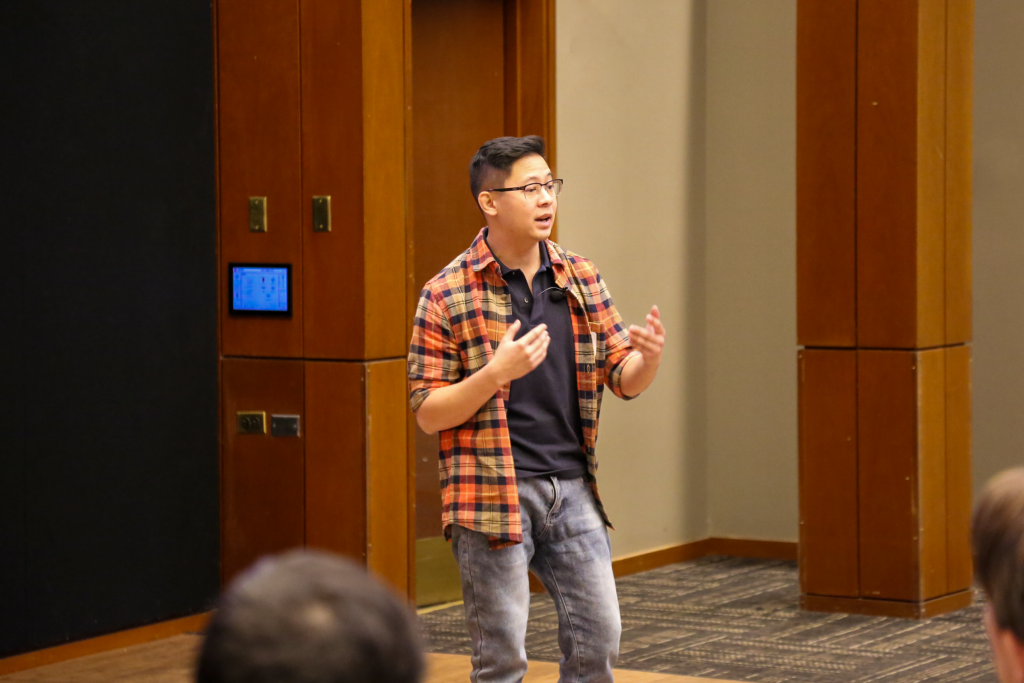Dan Moser, November 9, 2023
Tan wins Faculty Slam; clinches CoJMC’s three-peat
There are 23 Call of Duty video games, and they’re basically all the same – created to lock gamers into playing, again and again, controlled and manipulated by the industry. But Ryan Tan, who once designed video games for a living, thinks games can serve society more positively.
Tan, an assistant professor of sports media and communications, won the 2023 Faculty Research and Creative Activity Slam Nov. 8, chosen by spectators among five presenters.
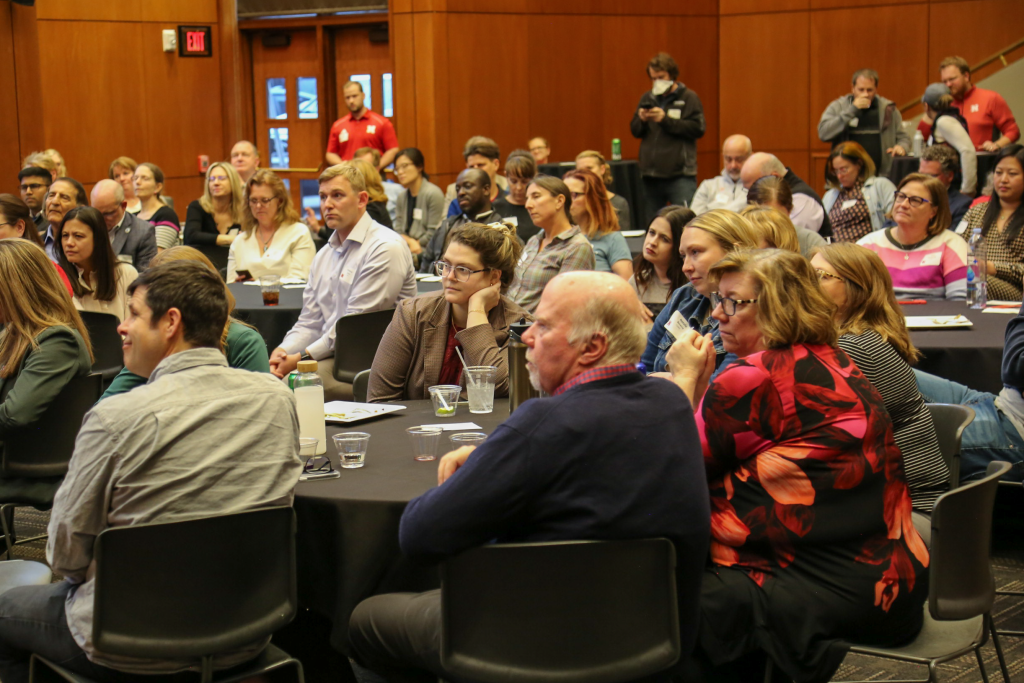
While he was still working in private industry, Tan said, his father, a pastor, asked for his help with a teenager addicted to a game Tan had helped design. His addiction was affecting his relationships with friends and family and was on the verge of getting him kicked out of school. Tan said he explained how games were designed to control and manipulate players, and the boy “kind of out of spite pulled himself out of it.”
It was an epiphany for Tan.
“I really didn’t want my work to be remembered for its addictive qualities.”
He now conducts research on the cognitive and emotional effects that video games have on players.
“What if we designed games for good? What if we designed games for social change?” Tan said. “That’s my research now. That is what I want to be remembered for.”
Tan earned a $1,000 prize to go toward his research. It was the College of Journalism and Mass Communications’ third straight slam victory.
Slammers organized their talks around the prompt “What do your friends and family members find most interesting about the work you do?”
“I see you, mom; I see you, dad”
Memories of an encounter with a child who needed help were at the heart of Ciara Ousley’s presentation, too. The assistant professor of special education and communication disorders recalled her former student Diego, a 10-year-old boy with autism who suffered from self-harm, unable to communicate.
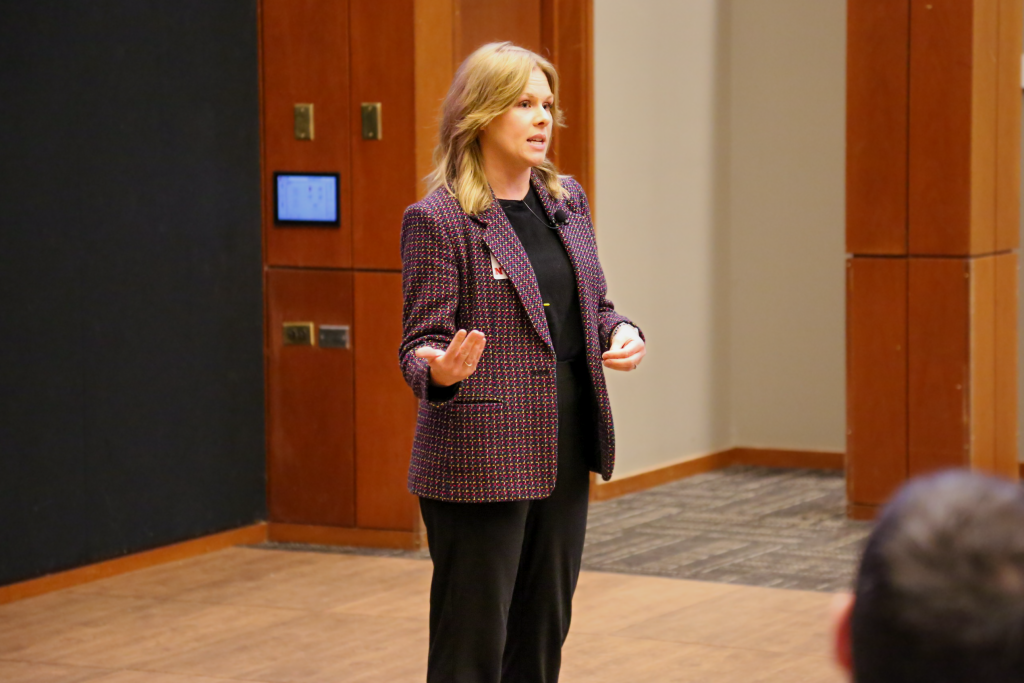
Working with Diego’s mom, she was able to make progress. Ousley’s research focuses on training and coaching parents to support their young children’s social communication skills.
But, she stressed, “I am not the expert. Those parents are experts.”
The message she wishes she could convey to Diego’s mother – all parents – who are caught up in the chaos of raising children is “I see you.”
A responsibility to protect animal welfare
Another slammer, Ruth Woiwode, said she got into working with animals to avoid dealing with people.
“You can probably guess how that turned out.”
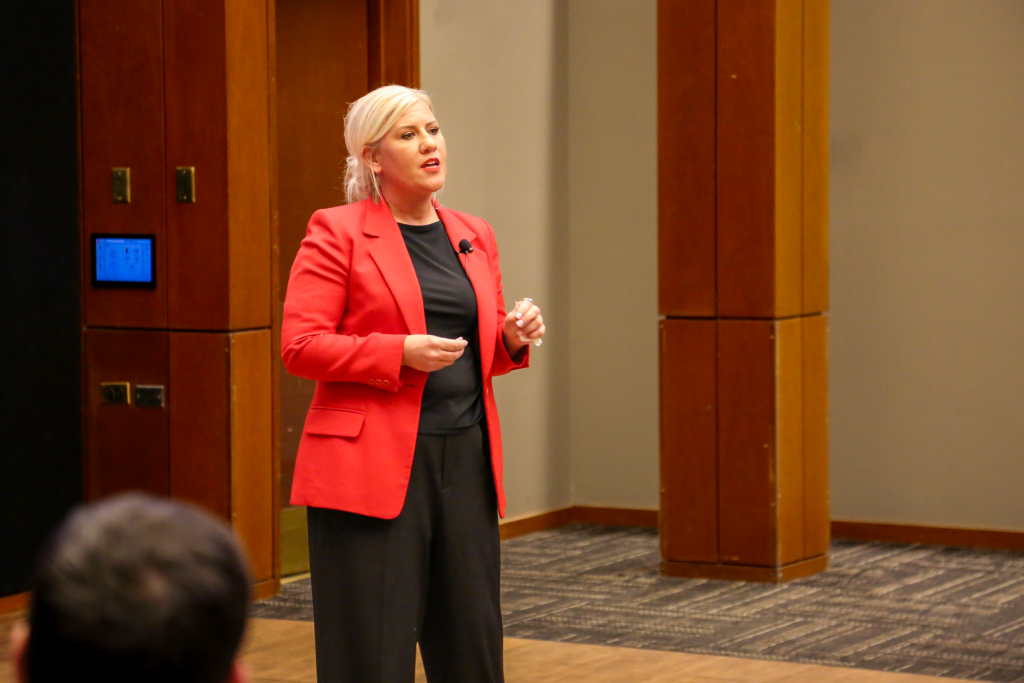
The assistant professor of animal science developed an on-farm animal welfare audit division for Food Safety Net Services. There, she found many companies treated their livestock badly, but usually not out of malice but poor training.
“Humans have a profound responsibility to domesticated animals, and human contact – of the positive sort – is non-negotiable. Outside of the basic needs related to survival that humans ensure for domesticated animals, human interaction is directly related to quality of life and animal welfare,” said Woiwode, who has developed training to address those needs, including measurable standards.
A ‘profoundly humane’ AI
As for Mohammad Hasan, there’s an app for that – literally. The assistant professor of electrical and computer engineering has created his personal AI, a doppelganger he calls HAL 2.0.
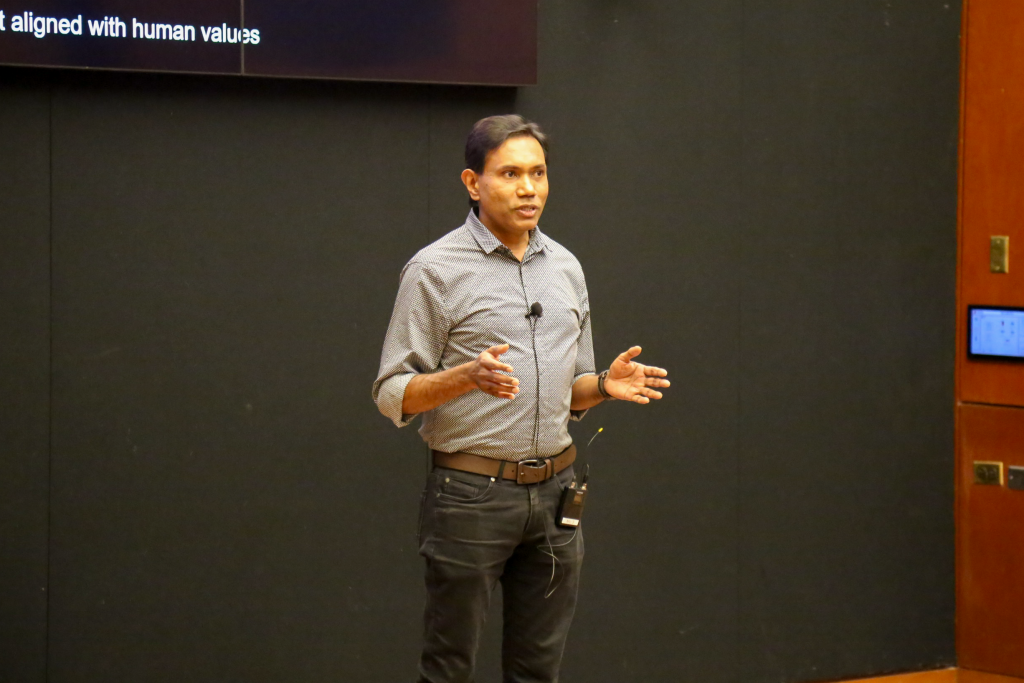
“It is an AI that knows us intimately and understands our dreams, our fears, our cultures, our moral and ethical codes, and our aspirations,” he said. It has access to various aspects of his life, including his health, education, career and hobbies and also has access to a vast external knowledge base.
“Combining these two types of knowledge, it creates a model of me to help me make smarter decisions,” he said.
“For example, it can tell me how likely I am to get diabetes in the next 10 years based on my current lifestyle and habits. It can also suggest some changes that can reduce this risk and improve my health outcomes. Its suggestions evolve and adapt based on my daily activities, never remaining static. It can also tell me how likely I am to get promoted next year based on my current performance and skills. It can also suggest new topics for my AI research that can enhance my career prospects.”
It’s an AI that is not just intelligent “but profoundly humane,” Hasan said.
This land is our land
Gwendŵr Meredith, assistant professor in the School of Natural Resources, sees well-intended people in conflict over how to protect the land.
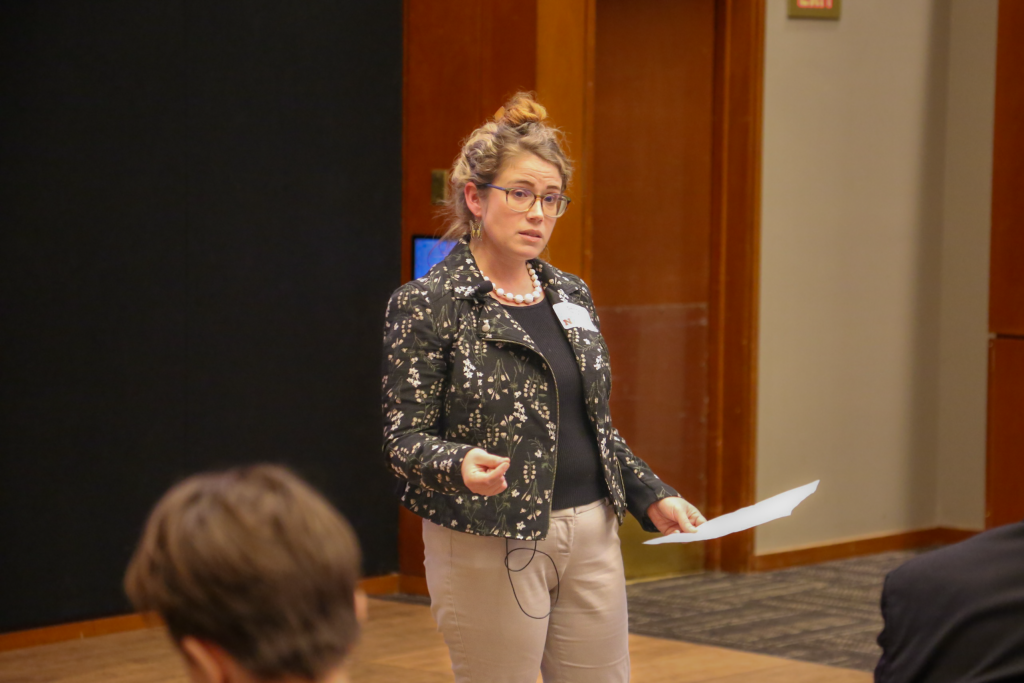
New ways conflict with old traditions, and the land suffers.
“The central question that arises is how we can harmoniously coexist with the land. As a social scientist, my job is to understand how we arrive at that common ground, and what I’ve observed is that our personal connections to the environment, often rooted in traditions, are as real as the air we breathe.”
Disputes between groups over how land should be used and protected are understandable, Meredith said, “but what gives me hope is that we are capable of valuing each other’s land management traditions and focusing on our shared values, and by doing so tap into our collective strengths.”
The faculty slam was part of Nebraska Research Days, which continues through Friday.
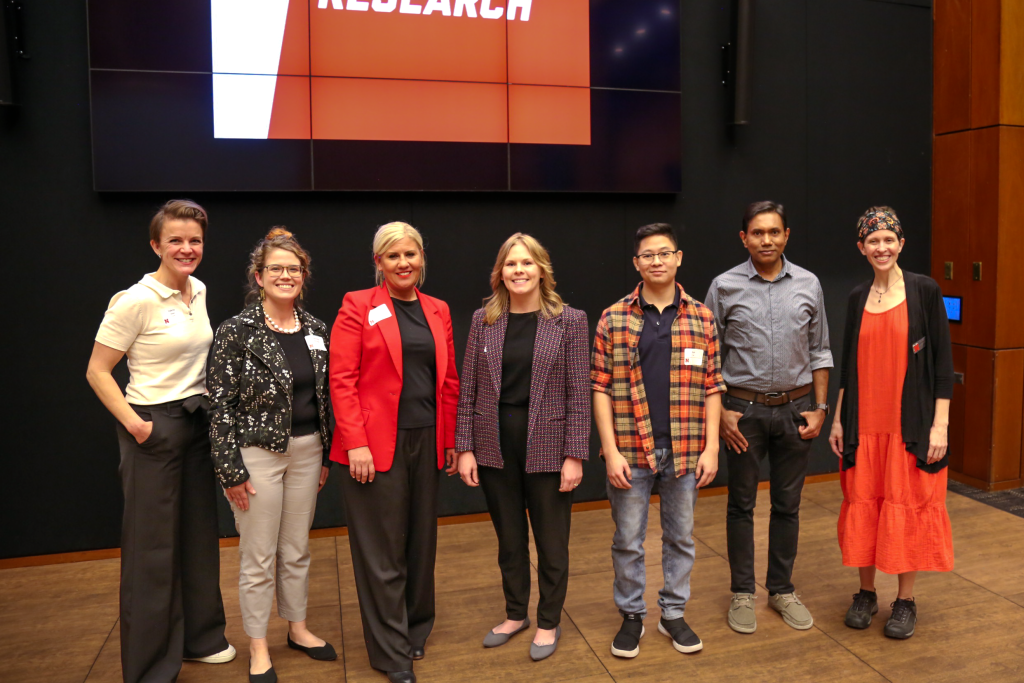
Institute of Agriculture and Natural Resources Research Days
